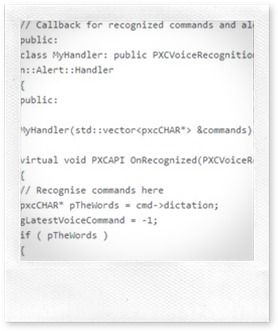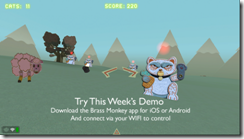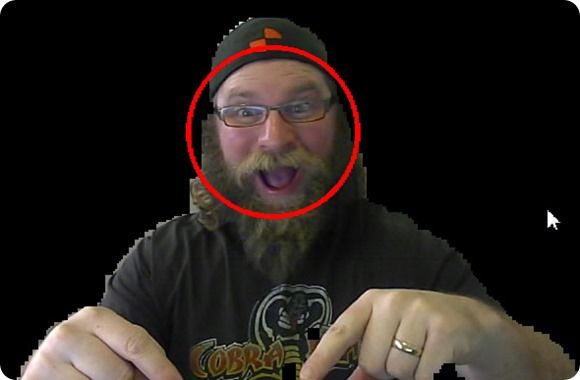7 teams are competing in the Ultimate Coder Challenge where showcase applications are being built for a Lenovo Yoga 13 Ultrabook to demonstrate the Intel Perceptual Computing hardware.
I’m involved with the judging of the Ultimate Coder event and every week you’ll find an update from me as I analyze the teams progress. This is week 5 and after this there’s just days before GDC where teams should be aiming towards having a good demo ready. Our Ben will be at GDC next week and talking to all the teams, seeing the demos and giving us a rundown of the progress he’s seen so stay tuned for that next week and if you’re are GDC, check out the Intel stage where teams will be presenting.
You can find all our Ultimate Coder posts here
Our Ultrabook software developer resources are here
All our Perceptual Computing posts here
Sixense Studios
Sixense give us a feel for how far we’ve got in this competition because “the pieces are finally starting to come together.” They’ve got their trees made, the puppets and scenes are looking good and there’s a dual-player mode coming together. I love the idea of puppet control and If Sixense get it right there’ll be a tight connection between the player and the character which could be a key feature for audience retention. You can find a great demo video on the Week 5 post here.
Peter O Hanlon
Peter has taken some my comments into consideration and demonstrates progress and changes with the user interface by taking into account the ‘hot’ areas of a touchscreen – the areas that are the easiest to get to. Once again there’s a big set of code for you developers to dive into. I was a little worried that Peter had completely dropped gesture support until I read at the bottom of his Week 5 article that he’s raising the priority of that for next week. Try and get a good gesture demo ready for GDC Peter!
 Lee Bamber.
Lee Bamber.
Good Lee! You’re entering Beta phase now and I think that’s important. Yes, “one bug can eat a whole day” and a big audience is coming up at GDC next week. Lee’s looking to get speech recognition integrated and solve the NAT hole-punching problem that hurts every VoIP solution. I love the way Lee is pushing the limits on testing and trying new scenarios. Lee, how about making a note of all the testing thoughts you’ve had. The one about the built-in gesture units being upside down, for example, is a good one. Lee’s week 5 post, and video is here.
Simian Squared
“Like it or loathe it, perceptual computing is the future.” Simian Squared go bullish on perceptual computing and I agree. It will form part of a range of input methods available to the user although before it takes-off in a mass-market way, an operating system needs to support in and OEMs need to build the hardware in. The guys are getting ready for some GDC action this week and due to another product launch don’t seem to have made too much progress but there’s some code to look at and a teaser video available. Check oh the Week 5 post here.
Code Monkeys
Something we talked about early on in this competition was the disadvantage of starting with a pre-existing application and then having to lever in the gesture controls to a UI that was designed for touch, mouse and keyboard. The Code Monkeys are tackling that this week. They’ve also mentioned the speed of gesture and speech recognition in their Week 5 update.
 Infrared 5
Infrared 5
Is there a typo here guys? “We completed some complex math to create very realistic perspective shiting in Unity.” Infrared 5 bring up a point we’ve talked abut before. Although the hardware and SDK are reducing the amount of data that reaches the applications, there’s still a huge amount of data to handle so getting well-optimised algorithms in place is critical. A good example is given in the Week 5 post here. A new playable demo is also available there.
Eskil Steenberg
Eskil has some honest truths to declare this week. He doesn’t value the camera and the data coming from it. We’ve talked about ‘fuzzy’ data here before so this error rate doesn’t surprise me but is it really that bad? There’s really only one way to find out, and that’s a huge part of this competition. What can be done with the current hardware and what needs to be improved. The SDK will evolve because of the feedback from this competition too so don’t despair Eskil. Find the limits, work within them and keep that good, detailed feedback coming. Eskil’s rant can be read in full, here.
Summary
I get the feeling that there’s some hush-hush going on this week while teams prepare for GDC in San Francisco next week. Unfortunately I won’t be there in person but Ben Lang, our US editor (VR and gaming fan too!) will be there to meet the teams and catch up with all the demos.
Important links for the Intel Ultimate Coder Challenge: Going Perceptual Competition
- Intel competition Website
- Join everyone on Facebook
- Competitors list and backgrounder
- Twitter stream #ultimatecoder
- All our perceptual computing coverage can be found here.
- All posts about this and the previous software competition can be found here
Full disclosure – We are being compensated for content related to the Ultimate Coder and to attend an Intel event. We have committed to posting at least once per week on this subject and judging the final applications. All posts are 100% written and edited by Ultrabooknews.











